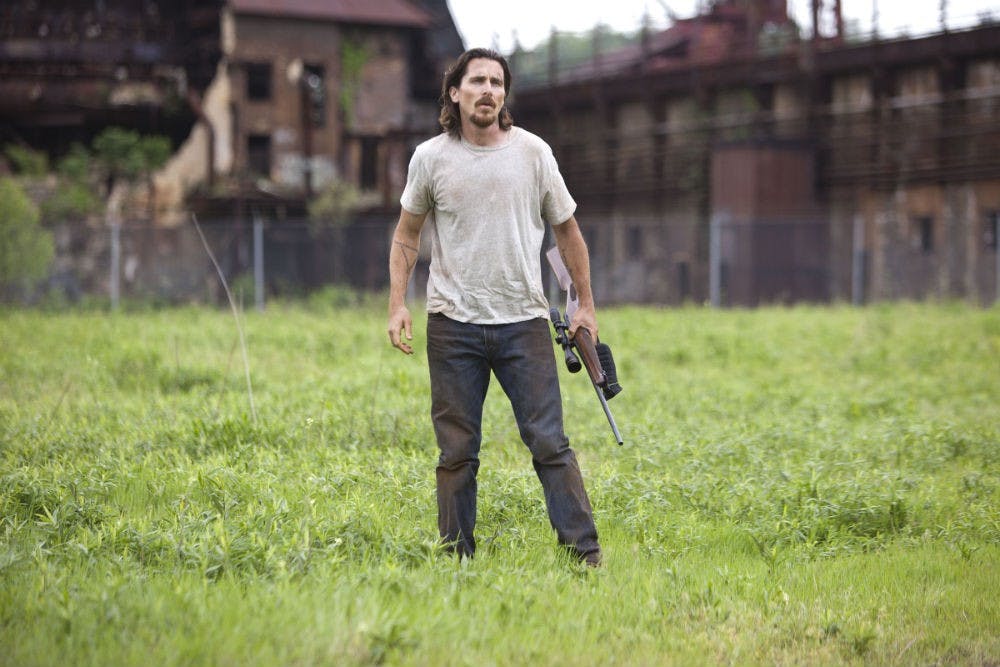In Scott Cooper’s (“Crazy Heart”) sophomore directorial effort “Out of the Furnace,” the story sets its backdrop amid weathered mill towns, ramshackle suburbs and seedy dwellings of Bergen County, N.J.
Cooper’s film begins strongly with the camera floating down on a drive-thru theater. Harlan Degroat (Woody Harrelson, “Rampart”), a menacing and savage figure, beats a man within an inch of his life. Violence is Harlan’s main currency and he’s adept at doling it out.
“Out of the Furnace” then shifts to the mill town where Russell (Christian Bale, “The Dark Knight Rises”) and Rodney Baze (Casey Affleck, “Tower Heist”) are brothers on divergent paths. Over the course of several years, the elliptical narrative goes from Russell’s imprisonment over the death of a family in an automotive accident to the death of their father and the travails of Rodney’s dangerous forays into bare-knuckle fighting.
“Out of the Furnace” exceeds its grasp by trying to traverse between being a domestic drama and a visually stunning action film.
Cooper’s film could have co-opted the action iconography and listless storytelling of films such as “Ronin” and “Hard Target,” but its tone resembles those of “Winter’s Bone” and “The Deer Hunter.” There’s an issue in its heart about the indolent and melancholic nature of abandonment of these mill town occupants.
The film’s performances are well executed as Bale does a fine job of portraying Russell’s anguish and the effort to remain noble in an environment that only kicks the inhabitants down repeatedly. Affleck mumbles throughout since he becomes troubled by his past in the military. Rounding out the cast of Zoe Saldana (“Star Trek Into Darkness”), Willem Dafoe (“John Carter”) and Sam Shepard (“The Right Stuff”) all make capable showings.
What “Out of the Furnace” does best is traverse the high wire act of making an action film set in the Ramapoughs with blue collar workers seem quaint while framing it within the degrading infrastructure of American small town dynamics. However, when it reaches its queasy conclusion, Cooper’s finale is not self-assured, leaving a final image that is altogether superfluous.
Cooper’s film seems most competent when it allows for viewers to witness what happens at the seams of society, where backwoods lawlessness reigns and the lugubrious effort it takes to acquire revenge.
dkahen-kashi@theeagleonline.com





